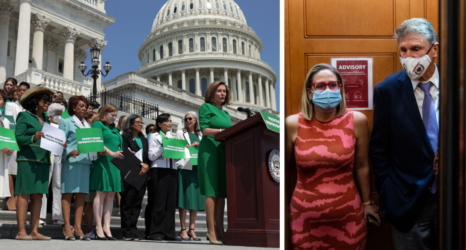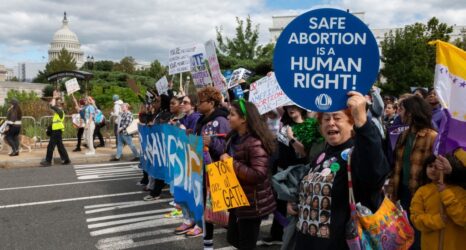The Iraqi artist, Basem Mahdi, wrote two square kilometer ‘save the marshes’ sentence in an attempt to shed light on the drought hitting the marshlands in southern Iraq.
Mahdi wrote the two square kilometer sentence in the marshlands of Al-Chibayish District in Dhi Qar governorate in southern Iraq.
The Al-Chibayish marshes is one of the most famous marshes in Iraq which suffers from a great drought due to the lack of water flow.
#Iraq: The mythical Mesopotamian marshes are going through their worst days with water covering only 300 to 400 km² down from more than 5,500 km². “The picture is bleak,” a prominent environmental activist told @TheNationalNews. #climate #crisis #waterhttps://t.co/TJqiuZLcJ0
— Sinan S. Mahmoud (@sinansm) October 20, 2022
#Iraq - According to one Iraqi MP from Dhi Qar: "the drought in the marshes has reached 90%." pic.twitter.com/jJyJ7ozna7
— Harry Istepanian (@HarryIstepanian) October 20, 2022
Ninety-one percent of Iraq’s water originates in Turkey, Iran and Syria, leaving the country at the mercy of those controlling the taps upstream. Accompanied by a translator and fixer, I set out, travelling northwards from the very south, across the country, to explore the impact of these combined forces on those most directly affected – and what that might forebode.
Poisonous snakes emerge from fields and slither into homes in Iraq, threatening people and claiming lives. In neighbouring Iran, crocodiles previously known for their “blissful” nature are attacking the same people with whom they have peacefully existed for as long as anyone can remember.
Almost 120,000 people were sickened and admitted to hospital by contaminated water in Basra, Iraq. Large protests over water and electricity claimed 23 lives. Water protests roiled Iraq’s Kurdistan in August 2021.
[. . .]Iraq is one of the world’s most water-stressed countries, ranked fifth in vulnerability to water and food availability and extreme temperatures in the UN Environment Programmes 2019 Global Environmental Outlook report.
Temperatures have risen by at least 0.7℃ over the past century; extreme heat events are occurring more frequently. The World Bank estimates temperatures will rise 2℃ by 2050 while the average annual rainfall will decrease by 9%.
President Barham Salih, in a recent piece in the Financial Times, noted that desertification affects 39% of Iraq and “increased salinisation threatens agriculture on 54% of our land”.
Unicef reported in August 2021 that 60% of children in Iraq lack access to clean water, while half of schools have no water at all. With Iraq’s population of 40 million expected to double by 2050, demographic growth will exponentially worsen the situation.
Meanwhile, dams in neighbouring Turkey and Iran choke Iraq’s famed rivers, the Tigris and Euphrates, in the heart of what was once known as the Fertile Crescent.
It was the river that is said to have watered the biblical Garden of Eden and helped give birth to civilization itself.
But today the Tigris is dying.
Human activity and climate change have choked its once-mighty flow through Iraq, where — with its twin river the Euphrates — it made Mesopotamia a cradle of civilization thousands of years ago.
Iraq may be oil-rich but the country is plagued by poverty after decades of war and by droughts and desertification.
Battered by one natural disaster after another, it is one of the five countries most exposed to climate change, according to the U.N.
Pollution caused by oil production in Iraq is the leading cause of increased rates of cancer in parts of the country; its environment minister has acknowledged.
Minister Jassem al-Falahi has acknowledged that pollution from oil production is the main reason for increases in local cancer rates.
After a BBC Arab research on oil pollution in the vicinity of Basra, which has resulted in an upsurge in leukemia cases in areas closest to the region's oil resources, Jassem Al-Falahi revealed the statement.
The information was disclosed despite Prime Minister Mustafa Al-order Kadhimi's prohibiting public workers in Iraq from discussing health issues associated with the oil sector.
Al-Falahi claimed that the Ministry of Oil prohibited personnel from the Ministry of the Environment from keeping track of pollution levels at the Rumaila oil field, the biggest in the nation and the location of the majority of waste gas flare-ups.
His remarks followed a BBC Arabic research that found populations around oil sites near Basra have a higher risk of leukemia than the general population.
Gas flaring, the wasteful burning of gas created during oil drilling, is suspected to be to blame in these towns. Pollutants like benzene linked to cancer are produced during flare-ups.
Monday, The United Nations world food Program and the Food and Agriculture Ogranization of the UN issued the following statement:
17 October 2022 - The world is at risk of yet another year of record hunger as the global food crisis continues to drive yet more people into worsening levels of acute food insecurity, the Food and Agriculture Organization of the United Nations (FAO) and the United Nations World Food Programme (WFP) warn. On World Food Day (16 October), the two agencies call for urgent action to address the root causes of today’s crisis as the world continues to face challenges without borders, including Iraq.
Iraq, known commonly as the “Land of Two Rivers” has been experiencing increased drought for the past two years, brought about by the rising temperatures, reduced rainfall which is the lowest in 40 years in addition to reduced water flows in Tigris and the Euphrates rivers. This led to degradation of arable land, increased water, and soil salinity, which all contribute to serious loss of livelihoods and an increased pressure on the state national budget, which imports cereals to ensure enough food, is available to the population.
“Iraq remains one of the most affected countries globally by the adverse effects of climate change. Unless mitigation and adaptation are implemented, the future may not be promising for the small holder farmers and vulnerable groups in Iraq,” said WFP Iraq Representative, Mr. Ally Raza Qureshi. “We at WFP believe that food is the path towards peace and as such, serious action must be taken immediately by the Government of Iraq and the International community to adopt climate smart food systems and long-term resilience building in order to ensure that Iraq and its people are able to navigate these testing times.”
“This year slogan for the World Food Day Leave no one behind. Better production, better nutrition, a better environment, and a better life, underlines the need for concerted action to ensure that everyone has access to adequate, healthy, and affordable food while maximizing environmental sustainability in particular in Iraq where climate change is disproportionally affecting the rural poor, their agricultural yields and productivity” said FAO Representative in Iraq, Dr Salah ElHajjHassan. “Each of us has a role to play in transforming food systems for the benefit of people and the planet; FAO is committed to empower the most vulnerable in Iraq, including women and youth, through the transformation to more efficient, inclusive, sustainable, and resilient agrifood systems. We need to act in global solidarity to ensure that no one is left behind and become climate advocates by wasting less, eating nutritious food, in particular seasonal and locally produced foods and caring for natural resources like soil and water”.
In 2021, Iraq developed a plan to increase the efficiency, inclusiveness, resilience, and inclusivity of its agri-food systems as part of the Food Systems Summit. This was done to ensure that everyone everywhere has access to enough affordable, safe, and nutritious food to lead active and healthy lives.
Twenty percent of the Iraq’s workforce are engaged in the agricultural sector, which is the second largest contributor to the country’s gross domestic product (GDP) after the oil sector, accounting for 5 percent of the total GDP. Thus, agriculture development is critical to allow Iraq to achieve their vision of a more diversified economy, in addition to generating employment and boosting private sector engagement. In this regard, urgent work must be undertaken on the levels of investing in research and development in an effort to make farming more technologically advanced and capable of handling adverse climate conditions and financially viable in the country, in addition to Agri-business and value chain development to increase profit margins and encourage farmers not to abandon their lands, which is not merely a detriment to their incomes, but also drives up local food costs and shortages, affecting entire communities. It is also paramount to discuss the issue of food waste, which decreases the availability of food intended for human consumption. This has consequences for the environment, natural resources, and the overall economy.
FAO and WFP together with the Government, private sector, academia, civil society will continue working together to prioritize food security, to increase local food production and to strengthen the resilience of the most vulnerable households. Immediate joint action is key to ensuring sustainable food and nutrition security while leaving no one behind.
Dr. Salah ElHajjHassan, FAO Representative, Iraq
Ally Raza Qureshi, WFP Representative, Iraq
For decades, Iraq has had to contend with all manner of challenges, sometimes catastrophes, that would hurt even the most resilient countries. The past 20 years have been particularly troubling.
The country is fast becoming one of the most environmentally stressed nations on the planet due to climate change but also to government negligence and incompetence. The results have ranged from failed harvests to cholera outbreaks, as desperation to access dwindling water supplies forces people to tap into contaminated wells.
The economy of one of the Arab world’s richest countries is crippled, devastating particularly for its disproportionately young population who, out of a lack of opportunity, are pushed into dangerous trips overseas. Iraqis constitute one of the biggest groups who migrate to Western Europe illegally.
This and other failures have fuelled political anger and driven many to the streets, even, as was recently the case, into the most important halls of power. Only last August protesters stormed the country's parliament.
لقاء مثمر اليوم مع رئيس الجمهورية عبد اللطيف رشيد @LJRashid. ناقشنا تعزيز علاقاتنا الثنائية، بما في ذلك دعم سيادة العراق وأمنه واستقراره بما يصب بمصلحة الشعب العراقي.@IraqiPresidency pic.twitter.com/awAZRrueu6
— Ambassador Alina L. Romanowski (@USAmbIraq) October 18, 2022
#Iraq's Parliament Speaker Mohammed al-Halboosi received on Tuesday the #USA Ambassador to Iraq, Alina Romanowski.https://t.co/pAfJXNyumZ pic.twitter.com/PzxDthvCP5
— SHAFAQ News (@Shafaqnews) October 18, 2022
President Rashid received US ambassador to Iraq
— KurdSat English (@KurdsatEnglish) October 18, 2022
The US Ambassador Alina Romanowski congratulated the president on his election as Iraq's new president and affirmed US's support to the Iraqi people. #Iraq #USA pic.twitter.com/OFptqyZec7
The sources told Asharq Al-Awsat that Romanowski has emphasized during her meeting with Al-Sudani the necessity to form a government that “contributes to restoring security and political stability in the country,” noting that it was essential to “benefit from the experience of previous governments, because failure this time will have serious repercussions on Iraq.”
Iraqi leaders tried to reassure the US ambassador in Baghdad that the new government would maintain its strategic relations with Washington, as reported by an official in Al-Fateh Alliance.
Al-Sudani also told the German ambassador to Iraq, Martin Jaeger, that his prospective government would seek to “build balanced relations with its regional and international surroundings.”
|
|
|
|
|
|
|
|
|
|
|
|











